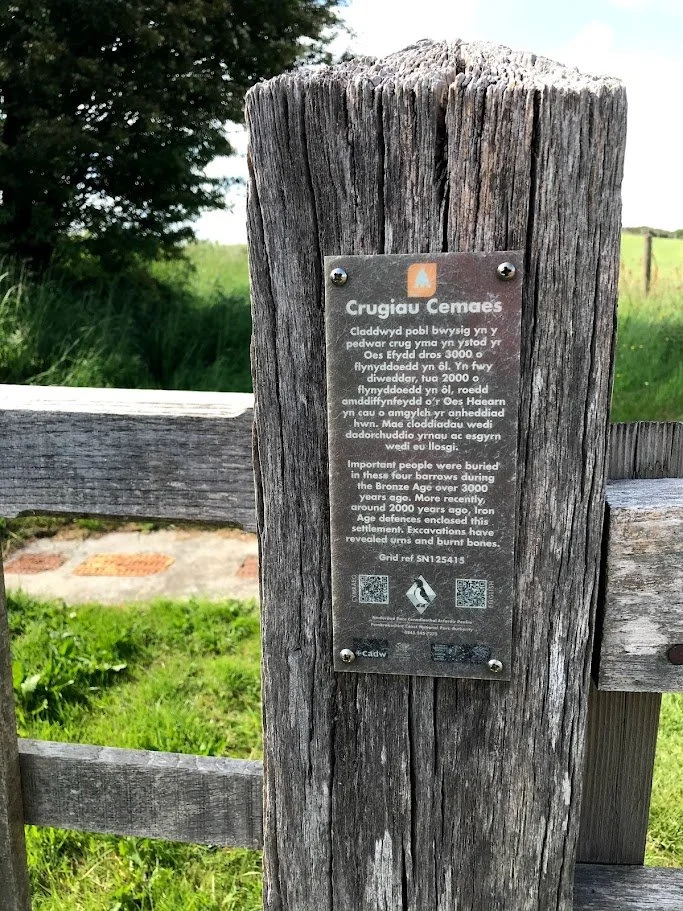
Welsh language and phases
Welsh language and phrases
Wales is one of only a handful of countries that uses two languages on an everyday basis: Welsh (Cymraeg) and English. The Welsh language has had a challenging history, facing times of suppression in the past, such as the burning of all Welsh bibles, and The Welsh Not, which facilitated the punishment of school children if they were caught speaking Welsh.
In more recent years, following a huge push to keep the language alive, paired with the pride that Welsh people have for their Mother tongue, it is no longer unusual to hear the beautiful, sing-song tones of the Welsh language, often spoken so quickly you could wonder how the listener could ever keep up.
Welsh is one of the oldest languages in Europe, evolved from Brythionic, a Celtic language which was spoken in Wales, England and Southern Scotland, and is going from strength to strength in its preservation and resurgence. According to Duolingo, Welsh is now the fastest growing language in the UK.
Whilst the Welsh pronunciation can feel impossible to someone who is new to the language, the local people that you encounter on your holiday will appreciate you trying, and gladly help you out, if you give it a go! Mainly phonetic, if you can master the alphabet, you’re up and running, so start with the easy stuff, maybe try out a good morning, hello or a thank you, and see how you get on!
Here’s a little Welsh ready-reckoner to start you off!
Diolch!
The Welsh Alphabet / Yr Wyddor
a short, as in ‘hat’, never as in ‘ball’
b as in ‘bag’
c always hard as in ‘cat’, never an s as in ‘precise’
ch like the ch in the Scottish word ‘loch’
d as in ‘dog’
dd a buzzy ‘th’ sound, as in ‘this’
e short, as in pen
f v, as in very
ff f as in fish
g always hard as in ‘get’, never a ‘j’ sound as in the last g in garage
ng as in ‘song’, where the g isn’t hard, like in ‘gig’, but a soft glottal stop made in your throat
h as in hat, always sounded and never silent
i as in ‘pin’
l a ‘luh’ as in ‘lava’, but never an ‘ul’ sound as in ‘milk’
ll not as hard a sound to make as some would have you think. Raise your tongue to the top of your mouth as if you were going to say ‘el’, then make the ‘ell’ sound by hissing like a cat
m as in ‘Monday’
n as in ‘naughty’
o short as in ‘hot’, not round as in ‘hotel’
p P like the small green round things!
ph an English f, or Welsh ff sound, as in ‘phase’
r rolled. Some people just can’t get a rolled ‘r’ – their tongues are unable to vibrate in the right way. Try making an old fashioned telephone sound, and sound like a motorbike at the same time!
rh hr. Make a huffy, breathy sound before your rolled ‘r’
s always soft as in ‘sit’
t as in ‘top’
th as in ‘think’
u A kind of ‘eugh’ noise, the vowel ‘eu’ sound would about approximate the ‘u’.
w ooooooh!
y As a single syllable word, y is like ‘uh’, on the last syllable of a multisyllabic word it’s an ‘u’ or ‘ee’
Useful words and phrases
Welcome Croeso
How are you? Sut mae / Ti’n iawn
Good morning Bore da
Good night Nos da
Cheers / Good Health! Iechyd da!
How do you say…. in welsh? Beth ydy….yn Cymraeg?
Thank you Diolch
Village Pentref
Happy Birthday Penblwdd Hapus
Beach Traeth
Mountain Mynydd
Lake Llyn
River Afon
Big House Tŷ mawr
Small House Tŷ bach (also used for toilet, so be careful what you’re asking for!)
Hotel Gwesty
Pub Tafan
Town Tref

